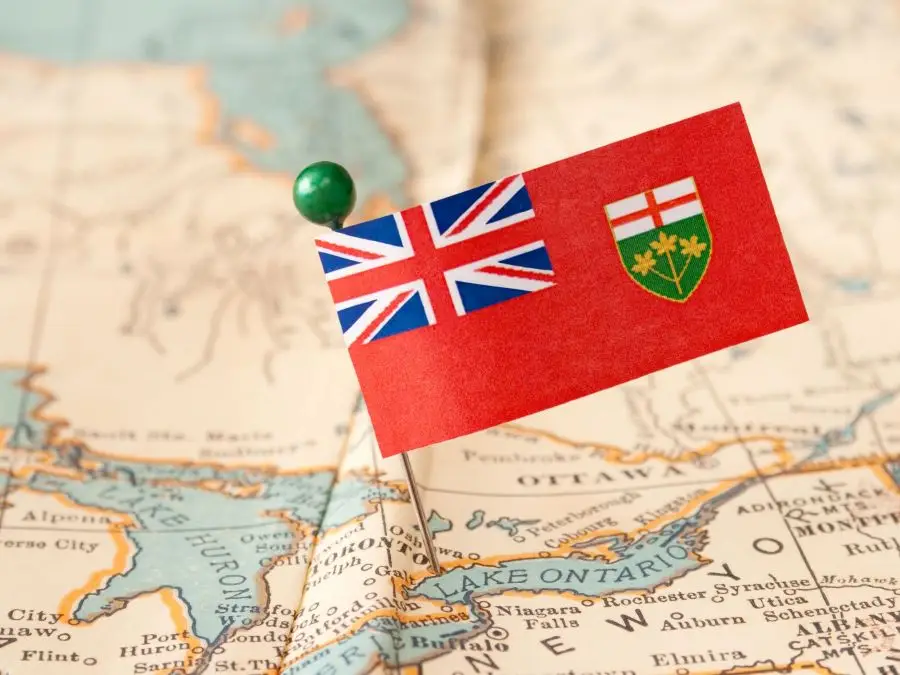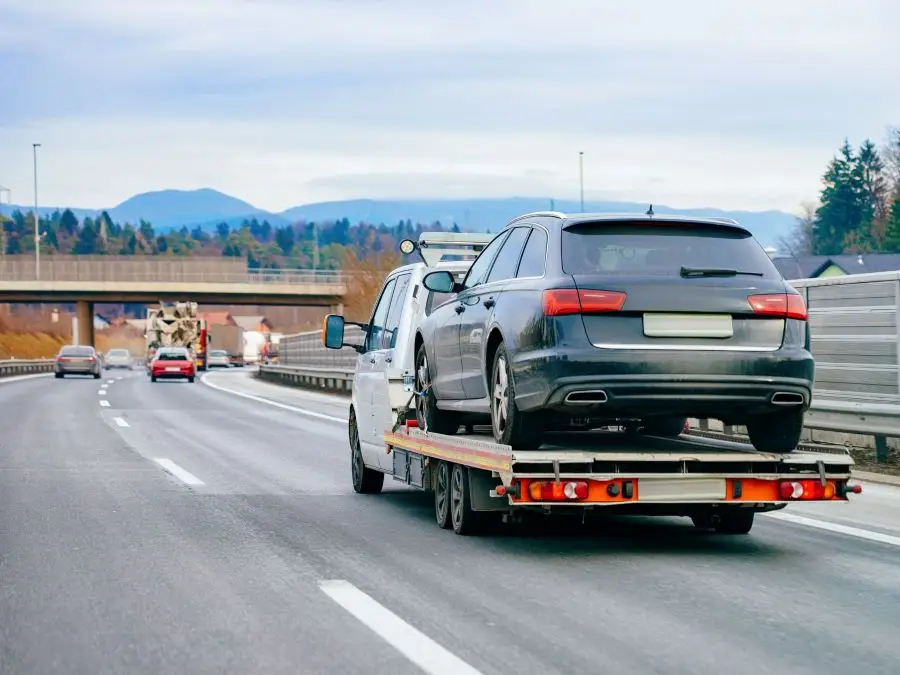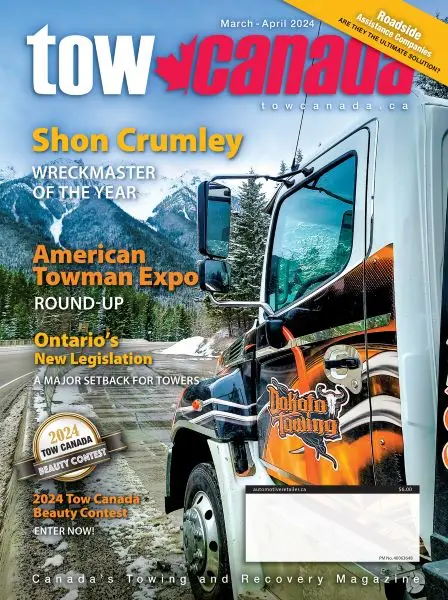Insight into the impact of the Ontario’s Towing and Storage Safety and Enforcement Act from the perspective of a professional tower and 35-year small-business proprietor.
by Dennis Roberts, TransCan Service Ctr. Ltd.
Over the last few issues, I have penned numerous articles with respect to Ontario’s Towing and Storage Safety and Enforcement Act (TSSEA). The legislation that has been introduced is far from the legislation that I welcomed many months ago as a solution to towing issues in the province. It is so much different than I thought it would be that I offer my deepest apologies to every professional tower in Ontario for the fact that I, at any time, thought that a government agency could produce a solution to the issues at hand.
The TSSEA is simply the biggest slap in the face to every professional tower and tow/storage business owner in Ontario.
It is obvious to anyone that has read the legislation, witnessed the many posts on social media, and taken part in the many meetings, emails, and phone calls that the Ontario government simply does not respect the vital services that the towing industry supplies. The government has no interest in listening to the input of the many associations and individuals that have, over the last few years, volunteered their time to help the Ontario government get it right.
It is a fact that, quite arbitrarily, the Ontario government has enacted legislation that will serve only one purpose: drive good businesses to find other sources of income outside the towing industry. There will be some that survive to be sure; however, the general direction of the conversations that I have had over the last few weeks has been one of pure disbelief. As a business owner, I have already made the difficult decision to withdraw my services from Ontario Provincial Police (OPP). Should the Ministry of Transportation Ontario (MTO) decide to forge ahead with this ridiculous excuse for legislation, it is safe to say that my company will not be in the towing industry this time next year.
I have always taken great pride in running an honest business with good equipment, well-trained operators, and a fantastic customer base. I also take pride in being able to supply the OPP with quick and efficient service for tows and accident recoveries. However, those services simply must pay a return on investment. The MTO seems to think that the tow and recovery industry should simply supply their services and survive on whatever scraps they can from customers with no insurance, from insurance companies that would rather pay an invoice into court than recognize their responsibility to their client (and expeditiously close a claim), or from a police service that calls when they need you, only to claim later that “it’s a civil matter” when you can’t get paid.
It is certainly not fair to our solid customer base to have to subsidize the clearing of provincial or municipal roadways. It is certainly not fair to ask tow companies to absorb an ever-increasing amount of unpaid law enforcement tows. To those of you who are not tracking this, you should start right now. We were tracking upwards of 30% unpaid tows (OPP requested) before we removed our services from the OPP.
"The government has no interest in listening to the input of the many associations and individuals that have, over the last few years, volunteered their time to help the Ontario government get it right.”

Now on top of this, add the fact that the Ontario government is allowing insurance companies to offer an opt-out for Direct Compensation Property Damage coverage to Ontario motorists. This basically says that if you are in an accident, even if it is NOT your fault, you get nothing: no repairs, no replacement, no tow coverage, no medical coverage—SQUAT! Thanks to the TSSEA’s vague and ambiguous wording, increased threats of Section 24 filings from the insurance industry have already started. Then there is the totally unacceptable “Max Rate Sheet” that the government is demanding that you supply. What enticement is there to stay in the tow business?
And if all this was not enough, the Ontario government considers it good practice and good stewardship to send out something as absolutely critical to a company’s future as a pricing schedule at 5:30 p.m. on Friday before the New Year’s weekend. And, by the way, this schedule, which does not match any pricing schedule in the industry, must be completed and filed between January 15 and January 31 or the government will input $0.00 as your price.
Needless to say, I spent that weekend, like much of the time after, trying to calm a panicked industry and figure out a way to make sense of such a foolish action. Then, when the portal to input the pricing was opened, they got that wrong and had to reissue new instructions on how to access the portal. After repeated attempts by the Professional Towing Association in Ontario (PTAO) to stall this ridiculous pricing menu, they, again at the eleventh hour, decided to extend the deadline. So, the government gave us an additional 29 days to completely recalculate our pricing structure to try to fit a round peg into a square hole. The MTO is demanding that we input pricing at a “max rate”—the absolute most we would ever charge for a service.
There have been times when we have had to use a heavy wrecker to do an auto recovery. It does not happen often, only a few times. So, is this the pricing I should use? Or do I just pray that this type of recovery never happens again? There is no allowance or exception permitted if a tow or recovery costs more than your max rate. Too bad for you!
According to the MTO rate sheet, a basic tow is any tow of any vehicle, no matter the condition, as long as it is within five metres of the road. ARE YOU SERIOUS? If a car is on its roof, 4.9 metres over the edge of an embankment in a swamp, and buried up to the floor line, according to the MTO, that is considered a basic tow. If a car is in the middle of the road with the front end wiped off, that is considered a basic tow. If you’re picking up a clapped out 1999 F150 or a brand spanking new 2024 Corvette, it’s the same job, the same price.
If you need a flatbed, well there is only one rate for a flatbed, so there’s no sense in sending out a tandem flatbed. You won’t get paid for it. Send out the little single axle and figure out how to make it work! There is no consideration whatsoever for electric car towing or storage, but I can assure you, if you try to get extra for storing an electric car, as per the EV industry standard, you WILL find yourself in court, and you WILL find yourself fined by the TSSEA.
Speaking of fines, there are 11 pages of fines thanks to this new Act. They can fine you for anything, you name it. Here are a few examples:
- Fail to comply with lamp requirements: $250.00 (one for the driver and one for the company)
- Drive tow truck without required flare lamps or lanterns: $250.00 (one for the driver and one for the company)
- Fail to take adequate visibility measures: $250.00 (for both the driver and the owner)
- Charge or demand payment for services without first providing an invoice: $350.00 (goes back to the pre-authorizing a credit card before you dispatch, now illegal)
- Fail to submit an updated maximum rate schedule: $350.00
- Fail to tow in the most efficient manner: $300.00
- Fail to take required photographs: $300.00
- Fail to record date and time of photographs: $300.00
As mentioned, there are 11 pages of this, and that is not the worst you can receive. Administrative monetary penalties (AMP) are one example. And they can be applied without the right to be heard. That’s right—guilty until proven innocent! And subsequent infractions can net you up to $50,000.00 and up to six months in jail. Companies can receive an AMP of up to $100,000.00! All this and you get to fight the insurance industry for payment and swallow all the abandon vehicles you can tow at your own cost.
There is no doubt in my mind that the MTO did not consider even a small percentage of the havoc they have created, but that is what happens when you have no clue what you are trying to legislate and blindly follow an insurance industry that is simply looking to expand their profit margin.
Speaking of profits, there is nothing to be ashamed of when calculating your rates with a reasonable expectation of profit. A tow/storage company has just as much right to expect a profit for investment and risk as does an insurance company. With this legislation, you will be much better off selling everything, investing the proceeds, and getting a job as a Walmart greeter. Work your 40 hours and leave the worry and responsibility to the MTO. I have spoken with too many industry leaders with decades of experience that are one more frustration away from throwing in the towel, selling out, or selling their equipment and letting the MTO clean up their own messes. Is that what we want? No. Is that what the MTO wants? I doubt it. But when it comes right down to it, if there is no profit, why take all the risk?
In closing, there is a last-ditch effort by the PTAO to convince the MTO to review this mess. It does look like the situation will get legal, and this will cost. It will cost in money, cost in time, and it will cost in lost livelihoods and businesses. The MTO has failed on numerous fronts. It has contravened the federal Competition Act, and it has failed to have an independent third-party review of the industry as a cost analysis. They have also failed to make available to all stakeholders the information gathered in various meetings.
In a nutshell, THE MTO HAS FAILED!
I urge everyone in Ontario to get involved. Look after your own interests or the bank will do it for you.

